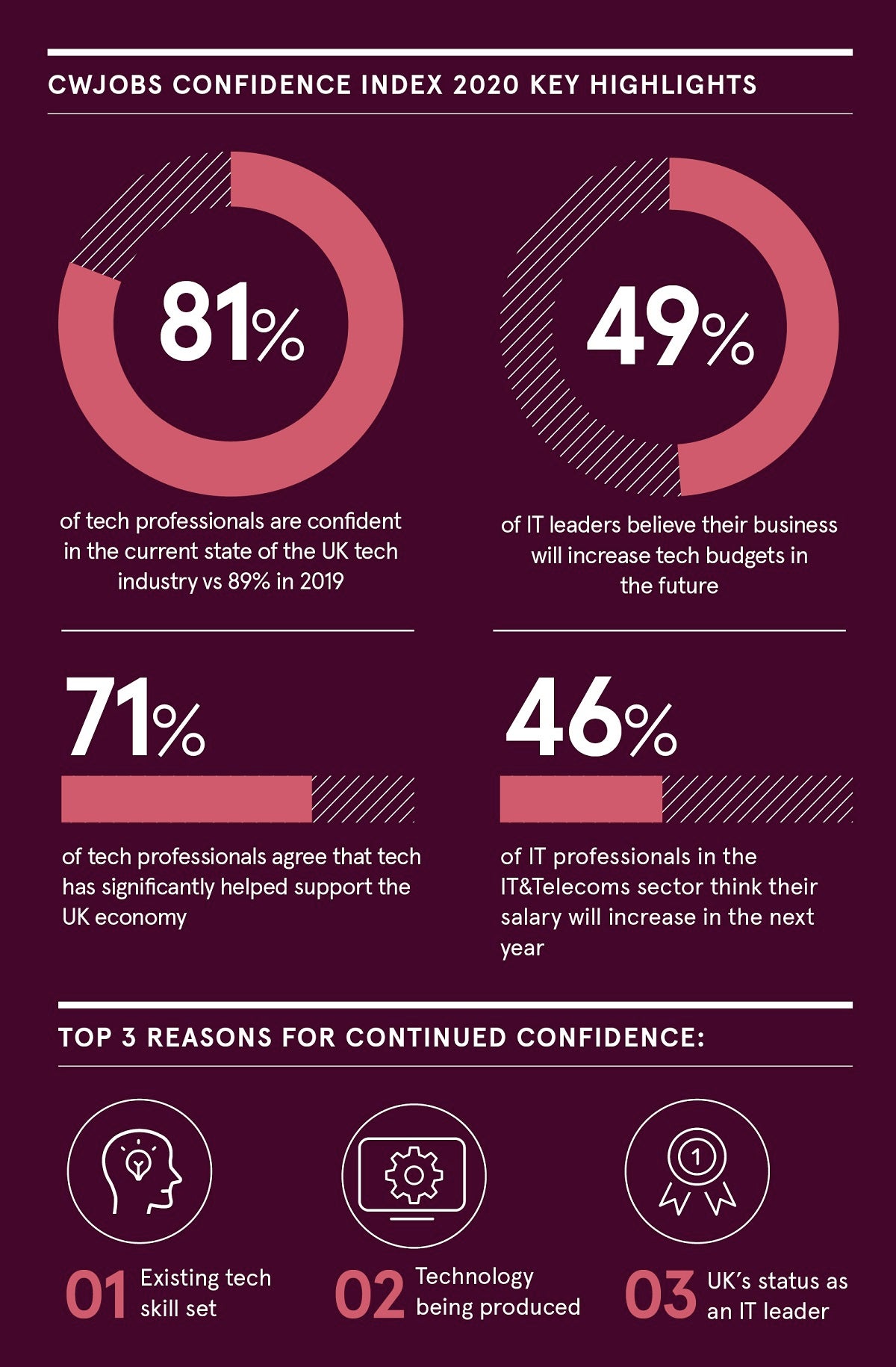COVID-19 has impacted all industries around the world, but confidence in UK technology has remained resolute. The CWJobs Confidence Index 2020, an annual research report studying the thoughts and feelings of UK IT professionals, was carried out in April, at the height of the coronavirus outbreak. The research showed that 81 per cent of respondents were confident in the current state of the tech industry, just 8 per cent lower than 2019.
Confidence in the industry may remain reasonably robust, but the effect of COVID-19 on the IT job market, specifically, has still been felt. According to the Recruitment and Employment Confederation (REC), the number of job adverts in the UK dropped from 1.78 million in March to 1.27 million in May, resulting in an unusually large talent pool compared to the UK norm.
However, the market has already begun to absorb much of the excess talent. The REC’S Jobs Recovery Tracker has recorded month-on-month gains in job listings since May, with a particular surge in adverts seeking IT professionals. The crucial role IT workers have played in enabling companies to adapt to remote working is likely to continue to bolster the resilience of the tech job market in the “new normal”.
“Tech was vital in enabling that sudden shift to working from home, which has changed the way many people within organisations view the IT department,” says Dominic Harvey, commercial
director at CWJobs. “Tech professionals really proved their worth, so much so that in the CWJobs Confidence
Index 2020 almost half of IT leaders said they expect to have their budgets increased in the next year. Despite the insecurity COVID-19 brings, many IT leaders will be pushing for more resources to ensure their systems are secure and can work remotely.”
As rising IT budgets and an amplified dependency on technology in an age of more home working create greater demand for tech talent, the UK’s digital skills gap will widen further. The CWJobs Confidence Index 2020 identified IT support, cybersecurity and cloud as the top skills needed to succeed in the current tech industry.

CWJobs saw the number of applications for specific sub-disciplines, such as software development and support, nearly double in Q2. Meanwhile, skills related to artificial intelligence and the internet of things will only be more sought after in the coming years as organisations continue to embrace such technologies to power their digital transformation.
Accumulating the best tech talent when the job market is suffering from a digital skills shortage is no easy feat, but it is crucial to companies succeeding in an increasingly competitive and challenging business landscape. Doing so means establishing the right balance between not just attracting tech professionals, but also upskilling.
“People in tech like to be in a company that’s driving forward, not stagnating,” says Harvey. “If you are really pushing innovation and creating a culture of ideas, that encourages people to join you because they feel like they can be part of the solution. Promoting a strong career in technology also applies to retraining and upskilling opportunities, while customised learning and development are key to retaining top talent. Companies should, therefore, invest in ongoing training to inspire commitment.
“Organisations need to rethink how they create and share job ads to attract the right candidates. Recent research among CWJobs candidates shows salary, location and required skills are the most important elements they want to see. Meanwhile, when companies really advocate for UK tech, we find it’s a great way to attract and retain top talent. As IT emerges from the pandemic, as one of the most resilient sectors, a strong attraction and retention strategy in this area is crucial to long-term business success.”
For more information please visit cwjobs.co.uk/recruiters/confidence-index-2020

